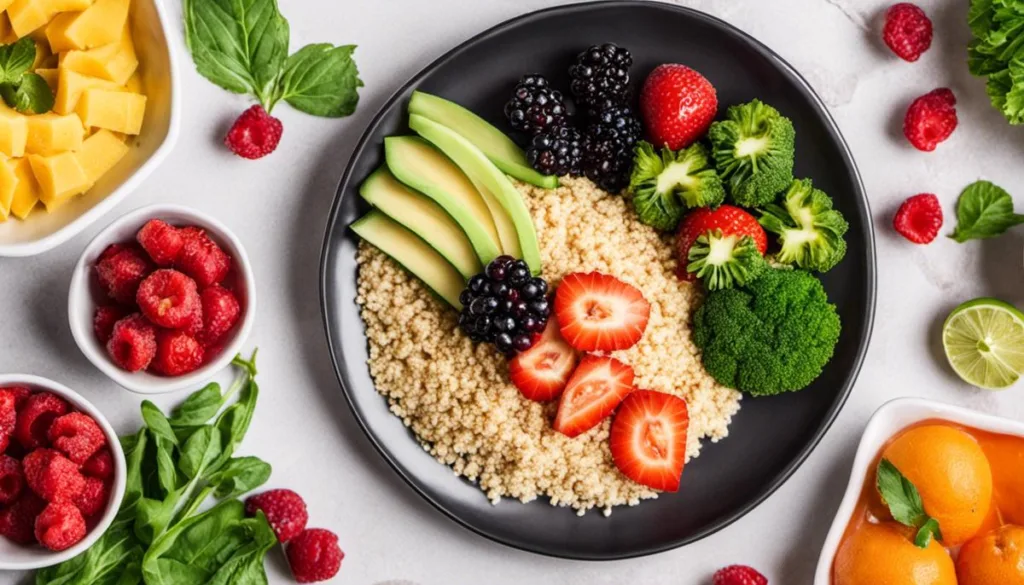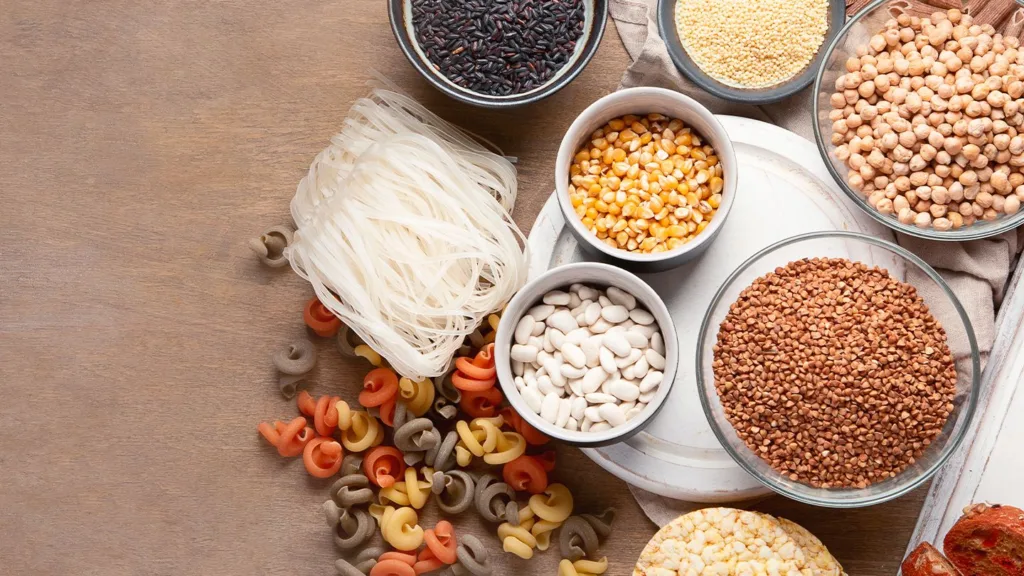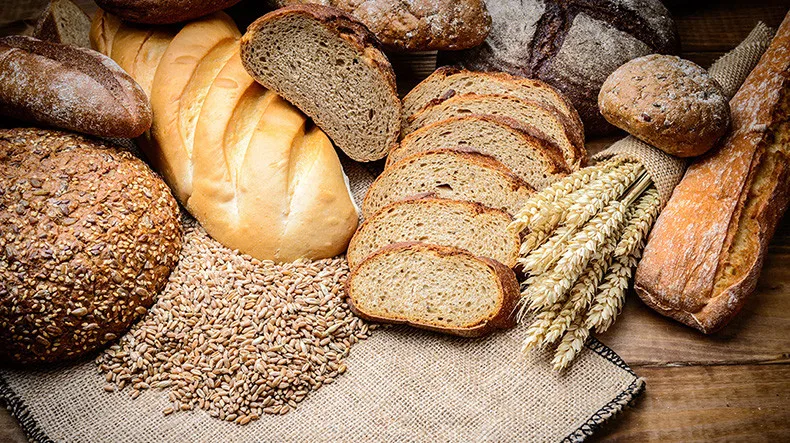We all want to feel our best – full of energy, healthy, and comfortable in our own skin. For those managing gluten-related conditions like celiac disease or non-celiac gluten sensitivity, the path to wellness can feel especially challenging. The good news? A gluten-free diet opens powerful doors for improving digestion, reducing inflammation, balancing hormones, and shedding stubborn pounds.
This ultimate guide covers everything you need to succeed on a gluten-free weight loss journey – from understanding gluten’s impact to meal planning basics to overcoming real-world challenges. Arm yourself with the right knowledge and practical strategies so you can move toward your feel-good weight with confidence. A happy, healthy you awaits!

Introduction
Gluten-free diets exclude gluten, a protein found in grains like wheat, barley and rye. For those with conditions like celiac disease or non-celiac gluten sensitivity, avoiding gluten is essential to manage symptoms and prevent serious complications.
In people with celiac disease, gluten triggers an autoimmune reaction that damages the small intestine. Non-celiac gluten sensitivity involves a different mechanism, but gluten still causes gastrointestinal problems and other symptoms.
Beyond digestive issues, gluten reactions also drive systemic inflammation, hormone imbalances, and other metabolic changes – including weight gain and difficulty losing weight. That’s why a quality gluten-free diet is the first step toward achieving a healthy weight.
Understanding Gluten and Its Impact on Weight
Gluten is a mixture of proteins (gliadin and glutenin) naturally present in certain cereal grains. Wheat is the main source of dietary gluten, but it also occurs in grains like barley and rye.
Many common foods contain gluten in some form, including breads, pastas, baked goods, cereals, beer, and processed foods using wheat or certain fillers. Condiments, seasonings and sauces often have hidden gluten from thickeners too.
For individuals with gluten-related conditions, these gluten proteins trigger immune and autoimmune reactions that spark inflammation throughout the body. This plays a direct role in weight gain and metabolic issues on several levels:
- Inflammation impairs insulin signaling, contributing to high insulin and blood sugar disorders. This promotes fat storage – especially unhealthy belly fat.
- Intestinal damage and “leaky gut” caused by gluten make it harder to absorb nutrients properly. Key vitamins and minerals are missed.
- The energy required to manage chronic inflammation and intestinal healing demands extra caloric intake. We need more fuel, so we hold onto more fuel in fat cells.
- Changes in appetite and cravings hormones occur, increasing hunger urges and temptation to overeat. Willpower weakens.
As you can see, gluten reactions promote a perfect storm for excess weight and frustration battling the scale. Eliminating this dietary troublemaker opens doors for better nutrient absorption, reduced inflammation and insulin levels, balanced hunger signals, and improved digestive health overall – so weight loss becomes more achievable.

Gluten-Free Diet Basics for Weight Loss
Transitioning to a gluten-free diet helps calm the immune responses and gut issues driving weight gain. But simply going “gluten-free” alone won’t make pounds automatically drop off. You still need a framework for healthy eating that supports weight loss.
Here are gluten-free diet essentials for losing weight successfully:
- Build meals with lean, organic proteins – pasture-raised meats, wild fish, eggs, beans or lentils. These sustain energy versus carbs alone.
- Pump up produce – especially green veggies for detox power. Enjoy some low-sugar fruits too like berries and citrus.
- Include healthy fats – olive oil, avocado, nuts, seeds and coconut oil. These promote feeling satisfied so you eat less overall.
- Avoid processed “gluten-free” products – they tend to pack extra sugar, fat and calories that sabotage weight loss.
- Read labels vigilantly – to spot hidden gluten sources or unhealthy ingredients in packaged foods.
- Experiment with naturally gluten-free grains in moderation – buckwheat, quinoa, rice, millet, amaranth. Measure portions.
Making these quality “clean eating” choices ensures your gluten-free diet facilitates – not hinders – your weight loss goals.
Gluten-Free Meal Planning for Weight Loss
Building balanced, nutrition-packed gluten-free meals is vital for losing weight successfully. Follow these meal planning pointers:
- Focus on flavorful, whole foods – combine herbs, spices, vinegars, citrus with meals instead of gluten, salt or sugar.
- Plan protein-rich breakfasts to charge energy, prevent mid-morning crashes and reduce cravings the rest of the day. Aim for at least 15 grams protein.
- Incorporate 2-3 vegetables and 1-2 fruits daily – vary colors for different antioxidants and phytonutrients.
- Add healthy fats to every meal – oils, nuts, seeds, avocado, etc. This sustains energy between meals.
- Prepare make-ahead dishes with extra servings so quick, healthy gluten-free meals are on hand during busy weeks.
- Keep quality snacks stocked – fresh veggies, hummus, nut butter apples, hardboiled eggs, cheese, plain Greek yogurt with berries. This prevents vending machine temptation.
With balanced planning, your gluten-free diet will leave you feeling nourished, steadier energy, and rarely deprived – so you stay consistent reaching your healthier weight.
Gluten-Free and Fitness: Finding the Right Balance
Exercise and staying active are essential companions for losing weight successfully on a gluten-free diet – or any eating plan. Movement builds lean muscle to boost metabolism, burns extra calories, balances blood sugar and insulin, elevates mood and reduces stress so you stay motivated.
For those managing celiac disease, non-celiac gluten sensitivity or related autoimmune disorders however, special care must be taken not to overdo activity. Intense, prolonged workouts can trigger inflammatory flares, intestinal damage, fatigue, injuries and clearly hamper weight loss progress.
Finding the sweet spot with safe, moderate – but consistent – exercise is vital. Follow this balanced fitness approach:
- Move daily even if just brisk walking, yoga or household chores. Get your body used to being active most days without fail.
- Strength training matters – do bodyweight exercises 2-3 days a week to build metabolism-revving muscle. Monitor energy to avoid crashes.
- Consider HIIT workouts done judiciously if tolerated – short, gentle intervals to raised heart rate then rest. Stop if worsened symptoms result.
- Add cardio intervals like cycling, swimming or incline walking 2-3 times weekly if possible. Check that post-exertion malaise does not follow.
- Listen to your body – more is not necessarily better. Monitor symptoms and adjust activity levels based on your condition. Prevention first.
With consistent, moderate movement that respects your healing process, the gluten-free diet can truly unlock your best body inside and out.

Overcoming Challenges on a Gluten-Free Weight Loss Journey
Sticking with a gluten-free diet – especially while trying to lose weight – brings inevitable real-world challenges. From dining out complications to travel hurdles, staying diligent requires extra effort. Be compassionate with yourself. And lean on some of these practical solutions for the common scenarios:
Dining Out and Social Occasions
- Research restaurant menus thoroughly online first and call with questions if needed to prevent unwelcome surprises.
- Explain your needs clearly to wait staff and chef. Ask about preparation practices.
- Bring your own gluten-free snacks or dish to share at parties. Enjoy bountiful salad bars, fruit plates and quality proteins if available.
- Politely pass on gluten-filled items offered and restate your commitment to health if pressed. People will adjust over time.
Traveling Gluten-Free
- Scout your destinations to identify safe eateries in each location. Apps like FindMeGlutenFree help enormously.
- Pack shelf-stable snacks, instant oats, nuts, nut butter packets, pouches of tuna, etc. to cover when other options are scarce.
- Request refrigerators and microwaves in hotel rooms for storing perishable gluten-free items.
- Research local grocers at destinations. Shop for gluten-free bread, cereal, fresh items to keep in rooms.
Coping with Emotional Aspects
- Practice self-compassion on tough days. Remind yourself this is a journey and you’re doing the best for your health.
- Reach out to friends, forums and groups following gluten-free lifestyles. Shared understanding helps enormously.
- Consider working with a mind-body therapist if emotions feel continually overwhelming. This is common but addressable.
While gluten-free travel, dining and socializing present obstacles, take it step-by-step. Each outing gets easier with planning and practice. And your healthier, lighter physical feeling is so worth it!
Expert Insights and Tips
Embarking on gluten-free weight loss journey is a pivotal move, but it raises loads of practical questions for making it work. Seeking input from experts helps connect the dots.
Here is candid advice from specialists in gluten-related health fields:
“Remember to eat Whole Foods naturally free from gluten as much as possible – meat, fish, eggs, vegetables, rice, quinoa, buckwheat – instead of trying to recreate gluten products like bread and pasta. Processed gluten-free baked goods usually undermine weight loss efforts. Focus on real foods.”
- Maya, Clinical Nutritionist
“Support healthy gut repair first with bone broths, collagen and fermented foods daily while avoiding grains initially – even gluten-free ones, as all grains can irritate. Let the intestines heal before adding those back in moderately.”
- Amy, Functional Medicine Practitioner
“Be diligent but patient losing gluten weight. Allow 6-12 months healing time before expecting a normalizing metabolism. And consider occasional fasting – it powerfully reduces inflammation driving weight gain.”
- Nina, Holistic Health Coach
The biggest takeaway? Proper healing of the gut first provides the foundation to lose weight and feel your best on a gluten-free diet. From there, transition to abundant whole foods, appropriate activity levels, and self-compassion around challenges. You’ve got this!

Conclusion
What a journey! We’ve covered everything from hidden sources of gluten and its links to weight gain all the way to dining out strategies and travel tips for the gluten-free crowd. While eliminating gluten is the vital first step toward reducing inflammation and easing metabolic dysfunction, truly optimizing wellness requires an integrative approach overall.
This guide provided tangible food choices, meal planning pointers, balanced exercise guidance and emotional coping strategies for living thriving gluten-free lifestyle – while also lowering weight and feeling incredible.
The journey requires diligence every step, self-compassion around occasional stumbles, and support from experts and communities that understand this path intimately. But so much vibrant health waits around the corner.
Want more specifics on gluten-related conditions, managing symptoms gracefully, kickstarting fasting, fixing gut issues, or incorporating functional supplements? Get free digestive health guides, recipes, exclusive interviews and content to support your highest healing – all available through our newsletter…
Join Us!
If you found this guide useful, empower yourself further by checking out related articles on improving gut health, reducing inflammation, managing autoimmune disorders, kickstarting nutrition, fixing fatigue, spice combos and more using the categories on our website!
Also be sure to sign up for our free Digestive Health newsletter using the link below. You’ll receive regular gluten-free living tips, recipes, wellness wisdom from experts and so much support for your journey delivered straight to your inbox. We’ve got your back as you move powerfully toward vibrant wellbeing.
Finally, I appreciate you taking time to read this guide and sincerely hope it brought you value. If so, share it with anyone else seeking gluten-free weight loss solutions so they can start their journey with confidence too. This lifestyle makes such a difference when we take the steps wisely and stay motivated together. Just know you have all kinds of support around you. Now go rock your health!
Thank you for reading this post, don't forget to subscribe to our free newsletter
!
